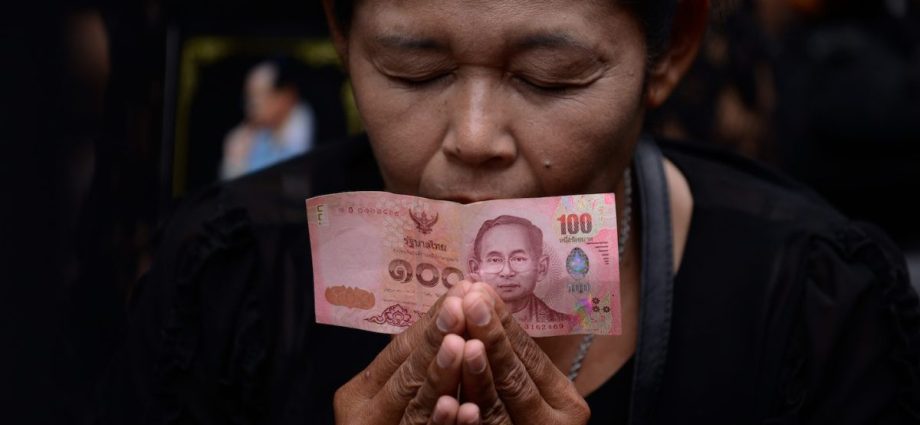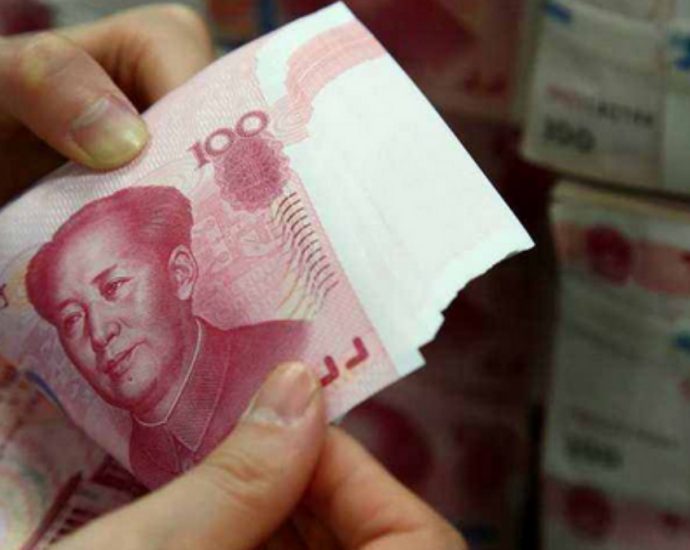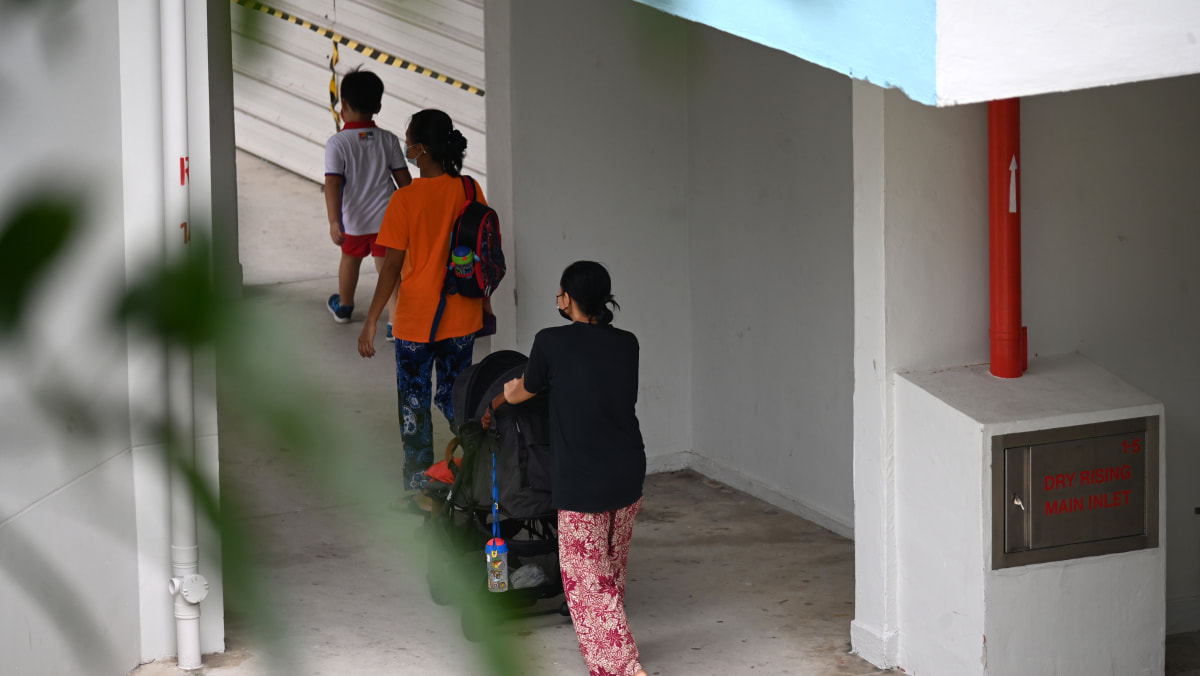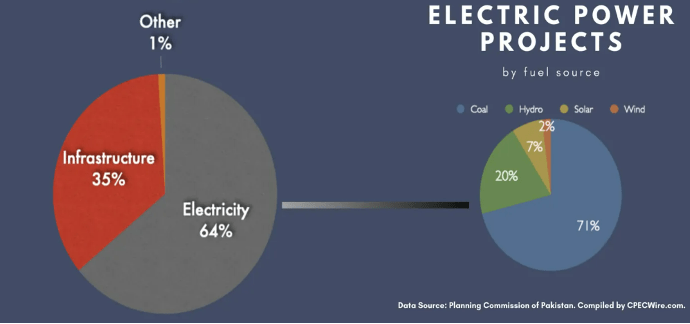The makings of a yen vs yuan currency war
TOKYO – The yen’s 10% tumble so far this year has the makings of the kind of wildcard that global investors hate.
Granted, Asian governments from Seoul to Jakarta are plenty used to Tokyo’s mercantilist predilections. Since the 1990s, the biggest consistency among the blur of Japanese leaders who came and went is maintaining a weak yen to juice exports.
Today’s government headed by Prime Minister Fumio Kishida seems more than happy to keep this cycle going. Yet there is good reason to worry Tokyo is courting more trouble than ever before.
This is the first time, for example, that Tokyo is testing Asia’s tolerance for a weak yen at a moment when China’s economy is slowing. Reassurances Tuesday from Premier Li Qiang that China will hit this year’s 5% economic growth target were music to investors’ ears. Even so, big doubts remain as headwinds intensify.
Another reason: a US election cycle that’s sure to feature Asian trade like none before in an atmosphere of intense bickering between Democrats and Republicans. The odds that undervalued Chinese or Japanese currencies morph into politicized flashpoints on the US campaign trail are increasing fast.
It’s worth considering how Tokyo’s beggar-thy-neighbor strategy might play out in South Korea or Southeast Asian economies still harboring PTSD from the late 1990s. Back then, the US Federal Reserve’s aggressive rate hikes boosted dollar-yen exchange rates to levels that forced officials in Bangkok, Jakarta and Seoul to abandon currency pegs.
Those competitive devaluations set in motion the 1997-98 Asian financial crisis. In the decades since, governments strengthened banking systems, increased transparency, created bigger and more vibrant private sectors and amassed foreign exchange reserves to better shield their economies from global shocks.
Yet the Covid-19 crisis demonstrated that Asia is still too reliant on exports for economic growth. Over the last 18 months, as Asia exited the pandemic era, global inflation and the most assertive US Fed tightening since the 1990s stymied recoveries.
The yen’s slide and its implications for China is a complicating factor of the highest order.

At People’s Bank of China (PBOC) headquarters, Governor Yi Gang has stepped up the pace of rate cuts as the economy slows. For Beijing, any competitive advantage it can derive from exchange rates is welcome in 2023.
“One-way traffic in the currency is not something the PBOC will want to see,” says economist Robert Carnell at ING Bank. “But we don’t believe they will be totally averse to seeing the Chinese yuan weaken further if it does so in a controlled fashion, especially as we doubt that they are done with cutting rates just yet.”
Within reason, though, given that Xi’s team had been working for years to increase international trust in the yuan (it’s down nearly 5% so far this year). An unstable exchange rate might squander that progress.
“Right now,” Carnell adds, “China is bucking the global trend and cutting, not raising rates, reflecting what is a very mediocre and rather disappointing reopening following zero-Covid.”
And “one of the upshots of this,” he explains, “is that the yuan has been weakening, with the PBOC seemingly quite tolerant of such weakness with all policy levers being considered to help offset the economy’s weakness.”
Yet the yen’s trajectory is surely turning up the heat on Asian governments and foreign exchange managers. That goes, too, for Ministry of Finance officials in Tokyo.
“As things currently stand, physical intervention to support the Japanese yen looks increasingly likely,” says Stephen Gallo, global currency strategist at BMO Capital Markets.
On the one hand, a weaker yen is exacerbating Japan’s inflation troubles, increasing the risk that price gains become permanent. On the other, Tokyo is loath to run afoul of US Treasury Secretary Janet Yellen’s team.
Earlier this month, Yellen’s team removed Japan from its currency watch list for the first time since 2016. It’s the list on which no trade-reliant economy wants to find itself.
In its twice-a-year report to the US Congress, the Treasury placed seven economies on its “monitoring list” — China, Germany, Malaysia, Singapore, South Korea, Switzerland and Taiwan.
It surprised many that Tokyo avoided a reprimand for foreign exchange interventions in September and October. Many observers surmised it’s because President Joe Biden’s team sees Tokyo as a vital partner in the “decoupling” effort vis-a-vis China.
At a June 16 press briefing, a top Treasury official said that FX interventions should only be conducted in “very exceptional circumstances” after consultations with other countries. China, by contrast, is being monitored as “an outlier among major economies” thanks to Beijing’s lack of transparency.
For Kishida and Japanese Finance Minister Shunichi Suzuki, this is an indulgence that Tokyo doesn’t want to lose. One concern from Suzuki and BOJ leader Ueda is that the yen’s downdraft might get away from them, taking on a life of its own that is hard to reverse.

The specter of additional US Fed tightening moves hardly helps. The good news is that US inflation pressures are easing. In May, consumer prices rose roughly 4% year on year, the slowest in two years and down from 4.9% in April.
Overall, “the trend has become very encouraging,” says economist Stephen Juneau at Bank of America about US inflation rates. “We should continue to see improvement in core” consumer prices, which exclude erratic food and energy costs.
Even so, Fed Chairman Jerome Powell’s team is hinting at another rate hike or two in the months ahead. That adds to the BOJ’s challenges as it attempts to slow the yen’s drop without upending markets.
Economist Kristina Clifton at Commonwealth Bank of Australia notes the “stark contrast between the dovish Bank of Japan and other major central banks suggests the yen looks set to fall further in the near term. The weak yen may prompt some further verbal intervention from Japanese authorities.”
The trouble is, though, the gap between rate policy in Tokyo and Washington is becoming more and more extreme. “The yen is suffering from a big negative yield gap versus other G10 currencies,” says strategist Vassili Serebriakov at UBS. That’s why UBS thinks a change in the BOJ’s “yield curve control” policies at the upcoming July 28 meeting “is much more likely.”
A big risk is that the weak yen could backfire this time. Historically, says Charu Chanana, market strategist at Saxo Group, Japanese authorities have had a preference for a weak yen to boost exports and support the industrialization of the economy. Therefore, intervention moves mostly happen when the yen becomes too strong.
Yet the dynamics have changed, Chanana says. “A lot of Japanese companies have now shifted their production overseas and that means that a weaker yen isn’t benefiting export companies as much as it once did,” she explains. “Japan is also reliant on importing a lot of resources, mainly energy, and a very weak yen makes that expensive.”
Still, old habits die hard. Bank of Japan Governor Kazuo Ueda has only been in the job for 80s days yet bets that he might act quickly to exit Tokyo’s 23-year quantitative easing experiment have been dashed.
Now, economist Richard Katz, publisher of the Japan Economy Watch newsletter, thinks the yen’s drop could accelerate. He notes that the “gap between Japanese and American 10-year government bond rates, with a supremely high 97% correlation. The bigger the gap, the weaker the yen.”
Earlier in the year, Katz says, many market players believed that the gap would lessen as the BOJ raised interest rates and the Fed began cutting them toward year’s end.
“Now,” he adds, “far fewer market participants still believe that; so fewer are willing to buy the yen at prices as high as they were a few months ago. The decreased demand for the yen causes it to weaken.”

The BOJ remains AWOL, though. Analysts say Ueda may be gun-shy following his predecessor’s attempt at tweaking yield levels on December 20. That day, then-BOJ leader Haruhiko Kuroda announced that 20-year bond rates could rise as high as 0.5%. All hell broke loose in world markets as the yen surged. The BOJ has largely gone silent since then.
“Any signs of BOJ tightening could lead to massive liquidity drain on the global economy as the carry trades that use the Japanese yen as the funding currency could start to be reversed,” Saxo Group’s Chanana says. “This explains the market’s nervousness.”
Geopolitical risks abound, too, adding fresh elements of uncertainty. In his Tuesday speech at the annual World Economic Forum meeting in the coastal city of Tianjin, Chinese Premier Li said global efforts to “de-risk” supply chains from China are a clear and present danger to global stability.
“Everyone knows some people in the West are hyping up this so-called de-risking, and I think, to some extent, it’s a false proposition,” Li said, apparently referring to European Commission President Ursula von der Leyen’s views on the issue. “The invisible barriers put up by some people in recent years are becoming widespread and pushing the world into fragmentation and even confrontation.”
Li added that “we firmly oppose the artificial politicization of economic and trade issues.”
The premier also reassured markets that Beijing is on top of risks to China achieving this year’s 5% gross domestic product target. “We launch more practical and effective measures in expanding the potential of domestic demand, activating market vitality, promoting coordinated development, accelerating green transition and promoting high-level opening to the outside world,” Li said.
At the margin, a weaker yuan might help China get closer to 5% by way of an export spurt. Yet Li and Yi’s PBOC must ensure any such move is an orderly one. With the MSCI’s index of Chinese equities down almost 20% from a 2023 high in January, exacerbating capital flight is the last thing Beijing needs.
On Tuesday, the state-run China Securities Journal newspaper argued that national growth will soon stabilize – just as Li said it would – as the pro-growth moves of the last month kick in. In the interim, though, the yen’s decline may have the teams overseen by both Li and Yi and wonder why China, too, shouldn’t be maximizing trade advantage with a softer yuan.
If you are South Korean President Yoon Suk-yeol, Indonesian President Joko Widodo or Singapore Prime Minister Lee Hsien Loong, why wouldn’t you be tempted to join the fray and weaken exchange rates, too?

The same goes for Philippine President Ferdinand Marcos Jr, Malaysian Prime Minister Anwar Ibrahim, Vietnamese Prime Minister Phạm Minh Chính or Thailand’s soon-to-be-determined leadership.
Even if it’s only Japan and China pushing the beggar-thy-neighbor envelope, politicians in Washington are sure to take note. As Biden runs for reelection, Republican challengers – many itching to investigate China over the origins of Covid-19 and suspicious of Asia in general – are sure to accuse Beijing and Tokyo of unfair currency manipulation.
It’s but one of the many ways Japan’s two-decades-plus obsession with a weak yen might backfire spectacularly this time. Nowhere more so than in Beijing, which can’t be happy about Tokyo’s benign neglect.
Follow William Pesek on Twitter at @WilliamPesek
























